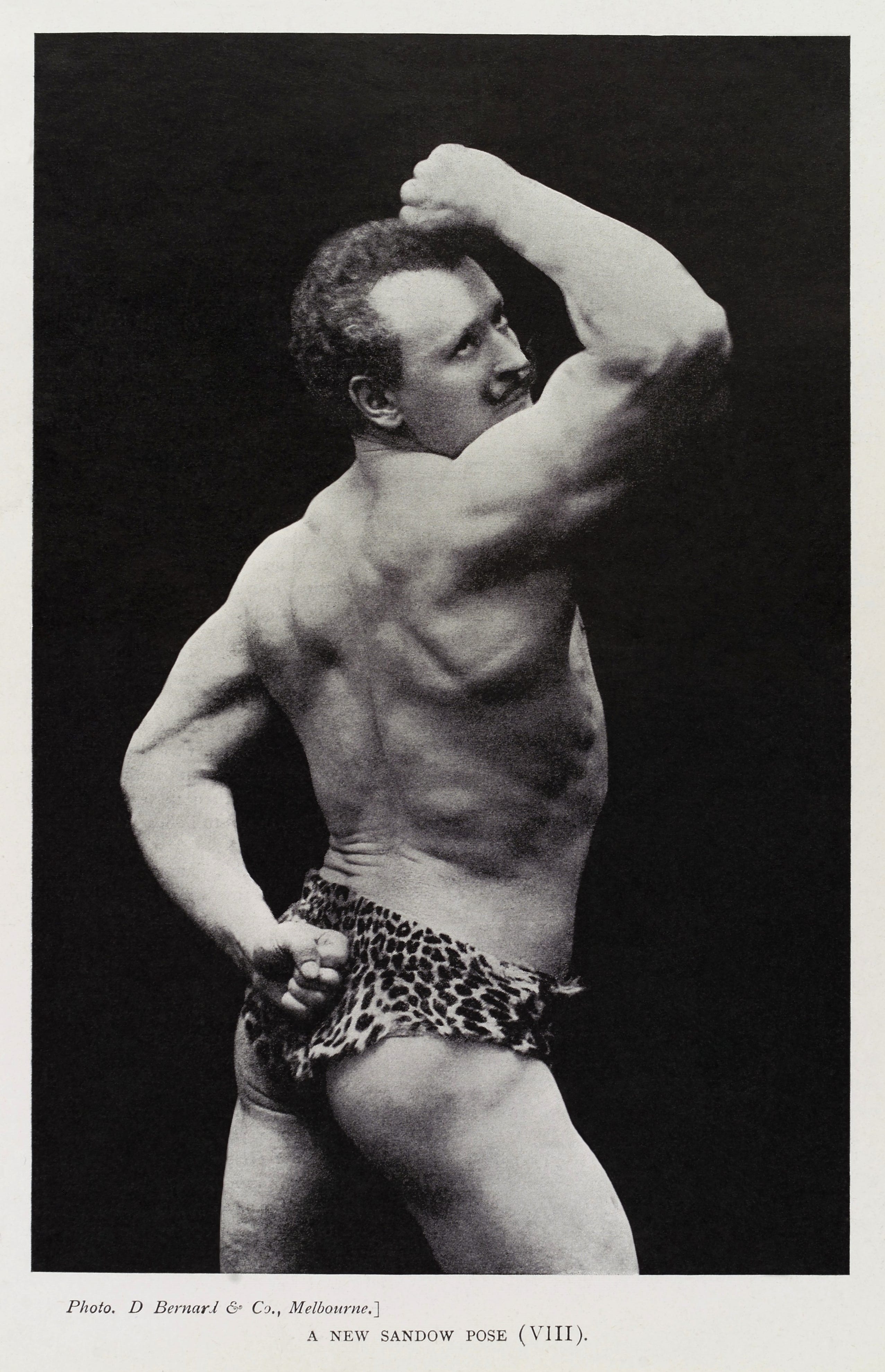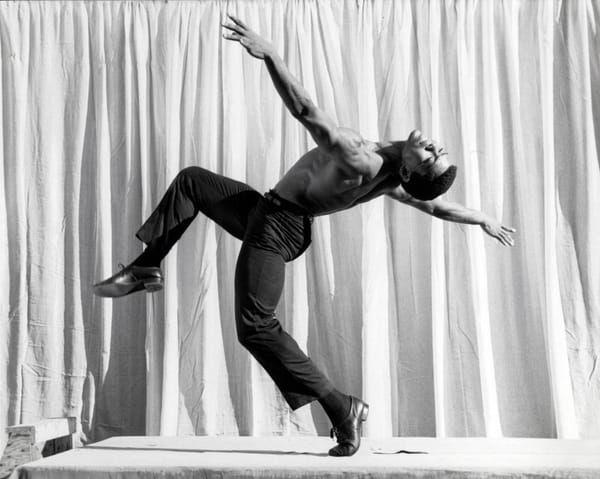The Cage Fight
2000 words on Musk v Zuckerberg, for which I apologize in advance
It is so ridiculously stupid: two tech CEOS, one of whom is — at the moment at least — the richest man in the world, declaring their intention to fight. Literal fisticuffs. A cage match. It's a beef that's been simmering for a while now, not just over whose social network will dominate the planet, but over the direction of computing and the future of AI. There was a kerfuffle over an exploded satellite. And there's been some posturing about who's the better innovator — you know, the typical tech-bro bullshit. It's all so ridiculously stupid, and yet it feels like it's all so ridiculously apt. That is it's all so ridiculously revealing about the toxic masculinity of the tech sector — and perhaps a broader identity crisis among American men as well.
Here's the back story: Mark Zuckerberg's company Meta (the monstrosity formerly known as Facebook) has built a new product, a Twitter-clone called Threads. Elon Musk, who recently acquired Twitter so that he could shit-post without consequence, caught wind of the development and tweet-emoji’d a LOL. Someone else on Twitter (for whatever that’s worth these days) then warned Musk that he should be careful about laughing too hard about the competition — no, not because Musk is so obviously a terrible, terrible boss with no clue how to run a social network, but because, Zuckerberg has become quite adept at jujitsu. And so, with typical Internet bravado, Musk tweeted that he was up for a cage match. And surprise surprise, Zuck agreed — or at least he posted as such one of his social networks, Instagram.
There's been some back-and-forth for a couple weeks now about the fight — is this for reals for reals? Some signs point to yes; others, well… The chatter seems to have subsided without our knowing an exact time or date or location. (You can place your online bet, regardless.) This is thanks in part to other headline news from the tech sector — least of which being Musk's ongoing efforts to drive Twitter into a ditch and of course the launch of Threads.
Cage match or no cage match, I feel compelled to weigh in and say something because, goddammit, this is a newsletter about fitness and technology. And this bullshit is now squarely in my wheelhouse.
I am sorry. Trust me. I am.
But I do think there’s something here.

Despite their immense power and wealth — an estimated $300 billion combined — neither Musk nor Zuckerberg have managed to control the media narratives about themselves.
The former has long been pilloried for his behavior on- and offline: getting high on air with Joe Rogan; his high-profile divorces and subsequent child-support and alimony battles; the naming of his first child with singer Grimes X Æ A-12 (I mean, having a kid with Grimes, and then the naming to boot); accusations of mismanagement at his companies (at Tesla, at SpaceX); and, of course, a very very long list of controversies from his shit-posting on Twitter, which he acquired in late 2022 and whose value immediately tanked. I could go on…
And then there's Mark Zuckerberg. While at Harvard, he created a “Hot or Not” rip-off that eventually became the most popular social network on the planet, making him, at age 23, the youngest self-made billionaire. We know plenty of unpleasant details about Zuckerberg from the biopic, from the biographies: his business cards once read "I'm the CEO, bitch," for example; but after several years of super awkward media appearances, Zuckerberg has seemingly worked to portray a different image: dog owner, dad, responsible sunscreen wearer. And lately: martial artist.
If social media — and indeed, much of our 21st century digital experience thus far — has focused on words and photos (status updates and mobile phone pics), what we see in Zuckerberg's new self-presentation is something more, well, embodied — fairly interesting, particularly as Meta is simultaneously trying to convince us the future is even more online in something the company so originally calls the "Metaverse." Musk, for his part, thinks all this is a computer simulation.
With a cage match between the two men, the longstanding corporate rivalry between Facebook and Twitter gets shifted from the performance of the stocks, from the daily active user numbers, and even from the personalities of its CEOs, onto the CEOs' bodies. The speculation of the companies' supremacy is now tied not just to "product" but physique: Mark Zuckerberg (age 39) versus Elon Musk (age 52). The latter outweighs the former by about 70 pounds, according to The New York Times — a difference that may be as significant as the age gap when it comes to a sport like mixed-martial arts in which participants are separated into weight classes.
Speculation about the cage-fight has all sorts of problematic angles to it, not just with regards to a fixation on body size and "fitness." Zuckerberg, so the reporting goes, has the upper hand, according to some. He recently ran a "surprisingly fast" 5K and won gold and silver medals at a local jujitsu tournament. "Mr. Musk, on the other hand, has tweeted that he 'almost never' works out and once suffered a back injury that required surgery after participating in an exhibition with a sumo wrestler," The New York Times has reported.
Dana White, the head of the Ultimate Fighting Championship (UFC), with typical exaggeration and bravado associated with the league, told The NYT that the match-up "will be the biggest fight in the history of combat sports." This is obviously not true. I mean, I'm not even a fan and I can name other fights of far more significance — not just athletically, but culturally: "the thrilla in Manilla" (that is, Muhammad Ali versus Joe Frazier); "the rumble in the jungle" (Muhammad Ali versus George Foreman); Evander Holyfield versus Mike Tyson (you remember: the one with the bite); Joe Louis versus Max Schmeling; Floyd Mayweather versus Manny Pacquiao; hell, even Floyd Mayweather versus Conor McGregor. (Does Alexander Hamilton versusAaron Burr count as "combat sports"? IDK)
Other wealthy technology executives have used sports as a proxy for corporate competition, although typically they out-source the physical effort to employees: the famous yachting rivalry between Larry Ellison of Oracle and Hasso Plattner of SAP, for example. See also: the ownership of almost every sports team by a million- or billionaire.
It's not immediately clear to me why, even pre cage match brouhaha, Zuckerberg's athletic turn was seen as unique — except, perhaps, for some very old cliche about nerds versus jocks. Many CEOs boast of a commitment to their physique, something that Sally Jenkins praises in her recent book The Right Call (which I reviewed here — a book that I'd put in the "airport bookstore" genre — one that those flying business class read, or at least buy, to discover how to be more innovative and such as they jet from coast to coast). Jenkins chronicles Disney's Bob Iger's morning routine, for example — he reportedly gets up at 4:15 every morning "and is on his punishing cardio machine, the VersaClimber, by 4:25 a.m." The successful athlete and the successful CEO have much in common, Jenkins argues: the commitment to training is a commitment to excellence, one that isn't merely physical. As Zuckerberg has said of his own study of Brazilian jujitsu: it requires "'100 percent focus' and strategic thinking to defeat an opponent, rather than brute strength."
Although some in the media find it rather titillating that "The Real CEO Flex Is Washboard Abs," this idealized body — an idealized masculinity, an idealized leader — has a long history, of course: the Roman poet Juvenal referred to mens sana in corpore sano, “a sound mind in a sound body," which as Ian Bogost notes in a recent essay in The Atlantic is almost exclusively the purview of the rich. (For all her excellent sports reporting, Sally Jenkins doesn't really talk about how pulling in a multi-million dollar salary surely facilitates both the star athlete and successful executive in getting buff. Nor does she address how gendered this pursuit can be.) For how else does one find the time, let alone the money, to train one's mind and one's body at the highest level?
The phrase "sound mind in a sound body" was particularly resonant around the turn of the twentieth century when the spread of industrialization prompted another period of social crisis and technology, one that we might look to for comparisons with today. This was the time of "muscular christianity" — of the connection between fitness and morality. This period also saw the institution of many modern sports, including the rise of bodybuilding, notably via the showmanship of the legendary Eugen Sandow.

In his lifetime, Eugen Sandow was one of the most well-known public figures in Europe and North America. The performances of his strength were held before sold out crowds. He turned his reputation as the world's "perfect man" into a lucrative business selling exercise equipment and supplements. He inspired other famous artists, including Arthur Conan Doyle, to start strength-training regimens; and his popularity extended throughout the British Empire — to India, even where Bhavanrao Pant Pratinidhi and Swami Vivekanda, among others, were influenced by some of Sandow’s philosophies and practices as they developed modern yoga.
Eugen Sandow was also a racist. Born in Königsberg as Friedrich Wilhelm Müller, he chose the first name "Eugen" as a nod to the work of Francis Galton and the “science” of eugenics. He believed, as did the proponents of the eugenics movement, in a pseudoscientific version of evolution, whereby one could "raise the average standard of the race as a whole" through the development of "physical culture" — that is, through the development of muscles.
Healthier and more perfect men and women will beget children with better constitutions and more free from hereditary taint. They in their turn, if the principles and the duty of physical culture are early instilled into them, will grow up more perfect types of men and women than were their mothers and fathers. So the happy progression will go on, until, who knows, if in the days to come there will not be a race of mortals walking this earth of ours even surpassing those who, according to the old myth, were the offspring of the union of the sons of the gods with the daughters of men! — Eugen Sandow, Strength and How to Obtain It (1897)
Sandow was a fitness entrepreneur at the dawn of a new media environment: he presented himself not only in stage productions (he worked with Ziegfeld of Ziefeld Follies fame) but also in publishing, founding the magazine Physical Culture in 1898 (just two years after the establishment of The Daily Mail, for context). And Sandow was an advocate for perfecting the body at a time when the body, particularly the male body, was viewed as in decline — evident in the disease and poverty among the poor as well as in the degeneration of the elite (and, of course, in the challenges to Empire). A crisis of masculinity.
In a recent Washington Post essay, Christine Emba argues that "Men are lost." It's an extraordinarily lengthy piece, and I don't blame you for skipping or skimming, as it features some of the worst men-fluencers that Internet culture has surfaced, including Josh Hawley, Tucker Carlson, Jordan Peterson, “Bronze Age Pervert,” and Andrew Tate. Tate, a former kickboxer, has volunteered to help train Elon Musk for the cage match, incidentally, which Emba doesn’t mention — neither the fight nor the offer of assistance from a man just indicted in Romania for rape and human trafficking.
Emba doesn't mention Sandow either, although she does cite Physical Culture: "An October 1920 issue of Physical Culture magazine advertised to men instructions on “How to Square Your Shoulders” (and to women, some advice: “Shall I Marry Him? A Lesson in Eugenics”). It's the only reference to eugenics in her piece, even though eugenics continues to be a part — sometimes implicit, sometimes explicit — of today's Internet "physical culture," quite evident in many of the arguments of those men she features: Peterson, Tate, and so on. Interestingly, several of the illustrations for the piece clearly allude to the well-known photographs of Sandow: his chiseled chest, his moustache, his flex, his nudity.
Silicon Valley has its own history of embracing eugenics too, something that Malcolm Harris examines at length in his excellent history of Palo Alto. Emba’s article, on the other hand, seems so sympathetic to men’s complaints and crises that she is able to glide right by the violence and domination that the Internet celebrities encourage, suggesting that we (women) have enabled this by demanding our own equality and by not allowing “boys to be boys.” And while a silly cage match between two billionaires might seem, as I said at the outset, just ridiculously stupid, it’s a mistake to laugh any of this off — not simply because that just makes men madder, as Emba warns.
The stakes are incredibly high. The January 6 insurrection attempt was another example of this toxic masculinity that has decided to play itself out in combat. We might say the same for all the mass shootings. It might not seem as aspirational as Sandow’s quest to develop “perfect bodies,” but there is a eugenics bent nonetheless in so many of these incidents: those who are striving for some other sort of pseudoscientific masculinity project — one intertwined with violence and with technology. We've been watching it unfold online for a long time now — at least since Gamergate (also strangely absent from Emba's piece). Now it's clearly extending offline, with those who broke the Internet not just encouraging it for clicks and ad revenue, not just leading the charge, but actively participating in the enactment of combat.
And sure, sure, maybe Zuck and Musk will “resolve” their issues the way rich men normally do — they’ll take it to court rather than pound each other’s faces in. But this cage match, whether it happens or not, seems to signal that something is happening with Silicon Valley’s version of manhood — something that draws on the history of “the perfect man” and physical performance, something that is wrapped up in the technology sector’s own insecurity and destabilization and love of bravado and violence.





